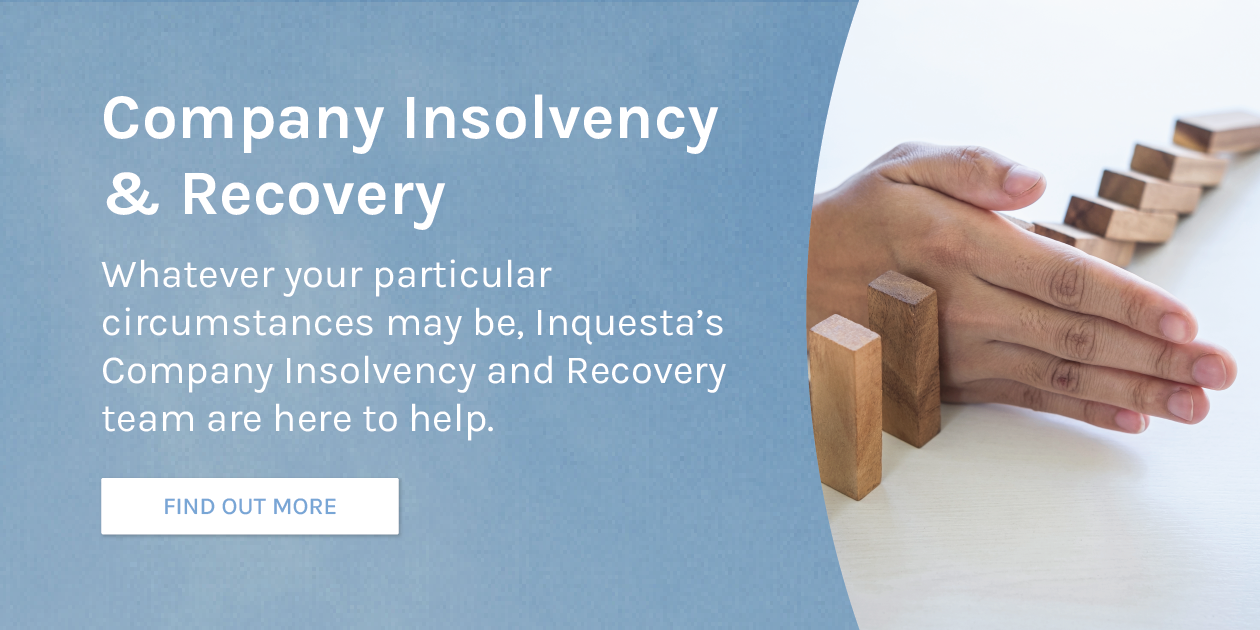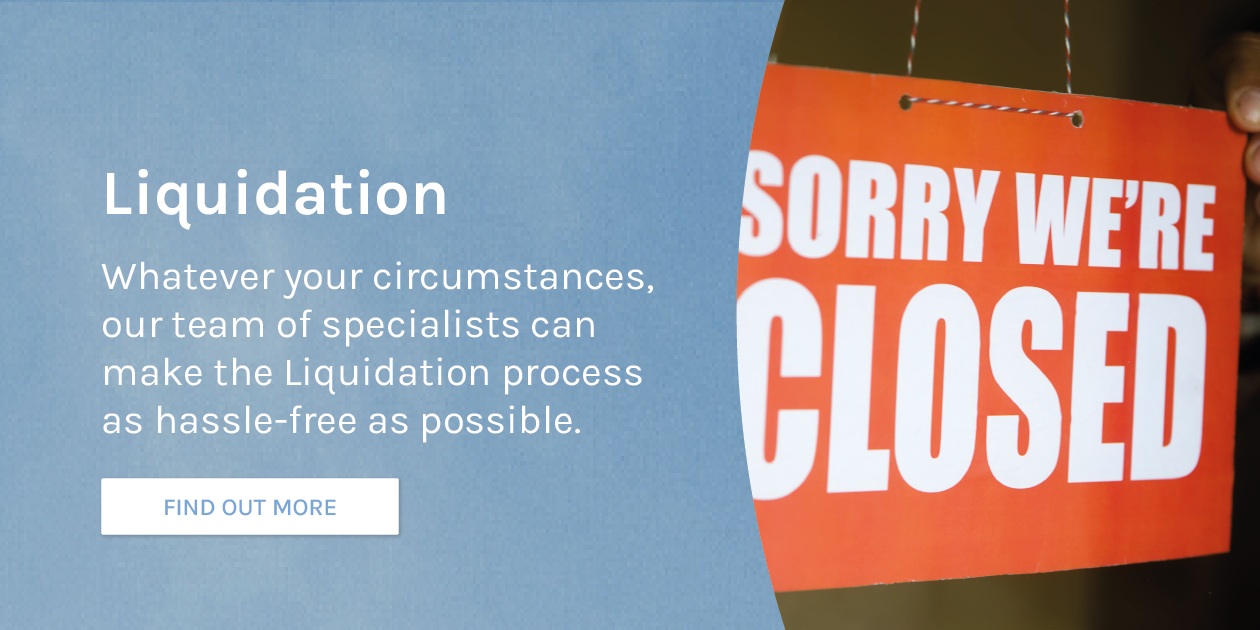If you’re a company director or owner and your firm enters liquidation, it’s vital that you consider all aspects of your business, and what impact liquidation could have on every party involved.
As director, you have a responsibility not only to ensure that your firm is liquidated properly, but also to show loyalty to your employees. This will ensure that, even though you were unable to stop your business entering liquidation, you can make sure that they get the funds owed to them.
Read on to find out more about what happens to employees when a company goes into liquidation and what you, as director, can do to ensure that your team is accounted for.
What Does it Mean When a Business Goes Into Liquidation?
Liquidation, or winding up, is the process of selling off a company’s assets, shutting it down, and deregistering it from Companies House. When entering into liquidation, you are required to bring a liquidator on board in order to ensure the proper process is followed, as well as to investigate the company.
The most common reason to close a business is to repay overdue creditors. There are two types of liquidation, namely solvent and insolvent. The differences between the two include:
- Different priorities: The priority of insolvent liquidation is to safeguard the interests of the company creditors. Contrastingly, the priority of solvent liquidation lies with not just repaying creditors, but acting in the best interests of shareholders as well.
- Control: Business owners will generally retain some influence in the process of a solvent liquidation. However, if insolvent, they must step aside in order for a licensed insolvency practitioner to take over.
- Personal Liabilities: The potential for personal liability for directors/shareholders increases in the case of an insolvent liquidation.
- Process: While no two liquidations are ever the same, the process will differ greatly between an insolvent and solvent liquidation. This includes how long it takes and how much it costs.
Liquidation will have a knock-on effect on all aspects of the business — all sectors, all faculties, from top to bottom, everybody will be affected by it.
What Does Liquidation Mean For Employees?
When a business enters into liquidation, generally all employees will lose their jobs. This is done because the end-result of liquidation, be it solvent or insolvent, is the final closure of the company. This process will be carried out by the liquidator. However, the type of liquidation can affect whether employees receive payment.
When a company is solvent, the process is called a Members’ Voluntary Liquidation (MVL). In an MVL all staff members should be paid normally as per their contract until their agreed final payday. However, when an insolvent company is liquidated there are unlikely to be any funds available for employee’s wages and other types of payment.
In the event of insolvent liquidation, all employees struck off will become creditors of the company. The order of payment is dictated by whether they are deemed to be preferential or unsecured creditors.
The difference between an ordinary creditor and a preferential creditor is:
- An ordinary creditor is any employee made redundant within the first 14 days of the liquidation process. This type of creditor is generally among the last people to receive money owed.
- Preferential creditors refer to employees retained beyond this two week period. Regardless of whether they are made redundant beyond this point or not, they will be given preference.
Are You Entitled to Redundancy if the Company Goes Into Liquidation?
Employees are entitled to redundancy if the business goes into liquidation. However, in order to make a redundancy claim you must in turn provide a case reference number. This will be provided to all staff by the company liquidator. In more complicated cases, it’s still possible to claim redundancy. However, it will be via the more stressful method of an employment tribunal.
An employment tribunal is a method used to deal with claims brought against a business by an employee — usually regarding the termination of their employment. Employment tribunals were created with the intention of simplifying this process. However, the often complex nature of such a case means that it can be both costly and time-consuming.
The amount of redundancy payment an employee receives will be based on a combination of how old they are, and how long they have been in their current job:
- Under 22s: Half a week’s pay for every year of employment prior to redundancy
- 22-40: One week’s wage for every year of employment
- 41+: One and a half weeks wage for each year
If you’re a company director who sees insolvent liquidation in your future, it’s vital that you take your employees into account. You must ensure that your actions do not prevent them from receiving money owed to them. The most common method of doing this is by employers closing down the company via dissolution. They do this because it is cheaper than formal liquidation. However, it makes it considerably more difficult for your employees to receive the compensation that they will need.
It is important that you contact a specialist licensed insolvency practitioner prior to making any final decisions regarding liquidation. This will ensure that you don’t cost your company or employees down the line for short-term benefits. 
What Happens to Directors When a Company Goes into Liquidation?
If you are director of a limited company that goes into liquidation, you will, to all intents and purposes, lose all of the power and authority that came with your position. This is because your firm’s liquidator will take over the running of your business throughout the process.
When your company enters liquidation, your two main priorities become ensuring that all trading is ceased, and supporting the insolvency practitioner in any and all requests they may have.
For more information on what happens to directors when a company goes into liquidation, check out our blog.
How Inquesta Can Help During Liquidation
At Inquesta, we understand how difficult and highly stressful liquidation can feel — regardless of whether you’re an owner, director, or employee. As licensed insolvency practitioners, we always strive to offer a holistic and all-encompassing service for everyone.
With decades of experience in providing a high-quality service for business owners from all manner of different industries and specialities, we know that no two companies are ever the same. Therefore, it stands to reason that no two liquidations will be the same either — which is why our liquidation services are designed to be tailored to your needs from start to finish.
No matter what your business’s circumstances, our liquidation service is here to help. We specialise in a huge variety of areas, including but not limited to:
- Business recovery
- Administration,
- Company Voluntary Arrangements (CVAs)
- Winding up petitions
- Bounce Back Loans (BBL)
Contact us today to request a free no-obligation consultation for further information about any of the services listed above. or to discover how else our team can be of assistance.




